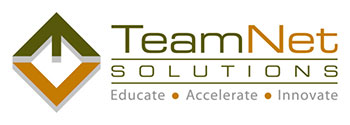
Original Blog Post: https://trainingindustry.com/blog/it-and-technical-training/balancing-certification-and-training/
By: Eric Naiburg
Imagine if you required surgery and found out that your surgeon had only ever taken written exams and had never actually performed a surgery before? Or if the pilot of your plane had studied his textbooks endlessly but never actually flown a plane? It might sound impossible, but in some industries, to receive a certification, all you need to do is attend a class – and that certification is sometimes more of a receipt than evidence of knowledge and understanding.
Certification should be thought of as evidence of knowledge, be it from practical experience, an internal or external training class, coaches, or, more often, a combination of these factors and more. Certification tests should be difficult and truly test one’s knowledge and understanding of the subject and, in some cases, how that knowledge can be applied in real-world situations.
Is Certification Always the Answer?
To grow, we need to always be learning and testing ourselves by inspecting our knowledge and thinking about where we want to go next. However, that doesn’t always mean taking a formal test. Sometimes, taking the knowledge gained from a class and applying it to their work without earning a certification is valuable to the individual and the organization they work for.
That individual or team is now more effective because of what that person learned. They might not have a certification to prove what they know, but they are demonstrating their understanding through action. Maybe they are coaching others, maybe they are using their newfound knowledge to work faster or add more value, or maybe they are just more confident in doing what they do. Regardless, both the individual and the organization that they work for are benefiting from the training.
Can Certification Help?
Certification is always a great option to help someone prove a certain level of understanding. Some certifications have multiple levels, so one can prove understanding at different degrees, such as “base,” “advanced” or “expert,” or “understands,” “can apply” or “can teach others.”
These certifications can help an employer gain a better understanding of the capabilities of the employee and give the employee added confidence and more credibility among those with whom he or she works.
Certification testing is also a great way to inspect and adapt knowledge. While tests are a great way to measure what is known and what is yet to be learned, the results of an assessment should do more than just promote someone or validate what he or she already knows. Assessment results should contribute to a larger learning plan. Then, once the plan has been executed, the test can be used again to assess if it was successful or if it needs to be altered.
What is Right for Your Organization?
There really is no black and white answer here. What works for some organizations may not work for others, and what works for some individuals within a single organization may be different as well. It’s important to work out an education plan for both the organization and its employees to assess their needs and skills. Certification tests can be a great way to assess knowledge before training even occurs to help select the right training for an employee.
Some organizations use certification tests as part of the interview or hiring process. In some cases, they use the test to judge the candidate’s knowledge and ensure they aren’t just quick at Googling.
Certification does have its place. It’s a great way to know what’s working and what isn’t. It helps to assess what is needed in the future and can be an added benefit for employees. When organizations cover the costs of certification tests, employees feel more empowered and supported by the organization. When they earn the certification, they then feel empowered to start helping others to learn.
However, certification doesn’t always have to be tied to training or even require that a training class was taken. We learn in many ways: reading, doing, having mentors, watching videos and much more. If certification is to be a true test of knowledge, then it can and should be more than a receipt for attending training. That doesn’t mean that training cannot be useful or provided by the certifying body; it means that training shouldn’t be forced just to earn a certification. Organizations should look at various avenues of learning and separate certification from training for a faster approach to knowledge that will mutually benefit the organization and the employee.










0 responses on "Balancing Certification and Training"